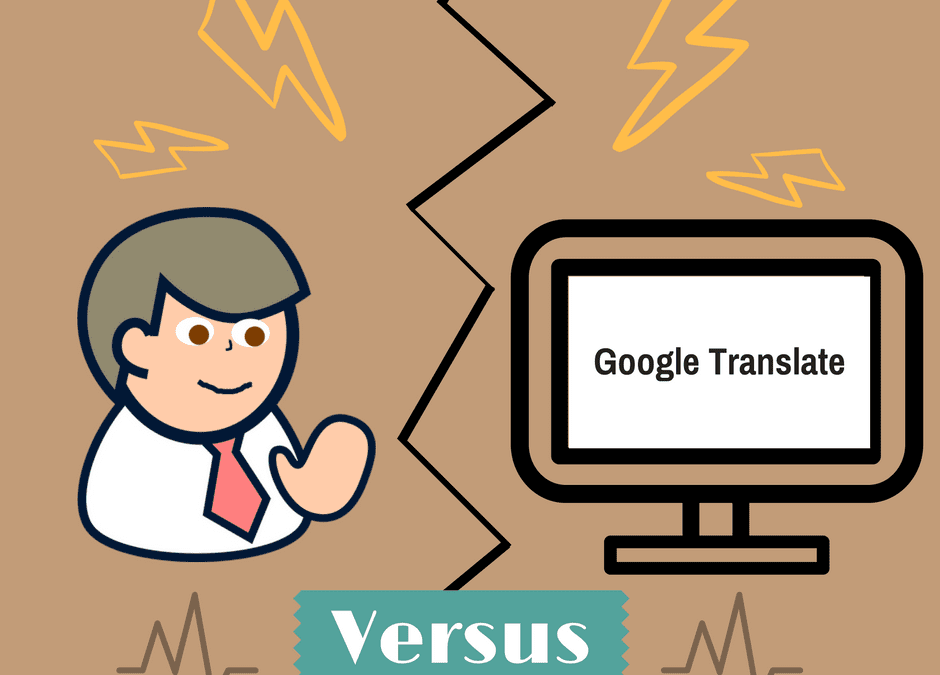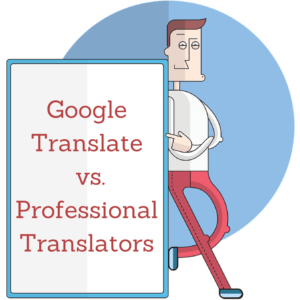Will Google Translate replace professional translators in the future?
In this blog post, we look at how Google Translate tries to compete with professional translators. Google Translate is a fast and easy way to translate words and short sentences. But how accurate are these online translations? Can they match the translations done by a professional translator? Could professional translators become obsolete due to the free online translation services provided by Google? In this article, we want to show you how Google Translate works. It may be an easy and fast way to translate a text, but it is in fact unlikely to become a competitor to professional translators.
The New Version of Google Translate
This week, Google launched their new version of Google Translate, which reportedly translates texts as proficiently as human translators. The system is more accurate and comes closer to matching the fluency of human translators s for some languages, such as Spanish or Chinese. It uses a technique known as “deep learning”, which uses networks of mathematical functions to recognize objects and translate speech in real time. Google asked test subjects with fluency in two languages to compare the translation work of their new system with that of professional translators. There wasn’t much difference between the translation done by Google Translate and the one performed by a human translator.
What does this mean for translators?
Translators are worried that people will start using Google Translate to get their translations done faster and free of charge thanks to the new system. However, anyone who knows a little bit about the art of translating knows that translating a text requires much more human effort than what a machine can accomplish.
A machine will always be a machine
People should remember that every translation is unique. Indeed, translations are not interchangeable. A translation of text A cannot be used for text B, even if the topic is the same. Human translators need to have a look at the source document carefully. Then they must decide what kind of terminology they should use. For example by asking themselves questions like:
- Is it an academic paper or a technical manual?
- Is it a romantic story or a legal contract?
- Who is the text written for? Children, adults or a specialized audience?
- Is it for marketing purposes or is the text informing people about serious medical issues?
These are the types of questions a translator must consider BEFORE they start working on a translation.
We know that computers can be programmed to distinguish between different terminologies. However, a computer cannot pick up on the broader themes of individual documents, nor understand the specific contextual requirements of a translation project. To understand this, human translators communicate with their clients and do their best to fulfill their clients’ needs. In contrast, Google Translate has no way of communicating with people to figure out what a client needs exactly in terms of context, purpose or intended meaning.
Translation is a science in its own right. When a professional translator translates a text, another linguist usually proofreads it to obtain objective suggestions for a final version. Google Translate is not able to tell you if there are better options or words that could be used for a specific translation. On the other hand, humans can, since they’re interacting with each other all the time. Google Translate gives you one option only and there is no room for discussion.
How far do we want to go?
LingoStar goes to great lengths to make sure we meet your specific requirements. We are at your service. Check out our website localization, language consulting, and interpreting services.
Feel free to give us a call on 604-629-8420 or email us to discuss your next language-related project. We are always ready to help you!
Multilingual Website Translations
Learn more how to successfully translate your website using professional translators. Download our ebook on website translations >>

Subscribe to our Newsletter to get the latest language news!


















